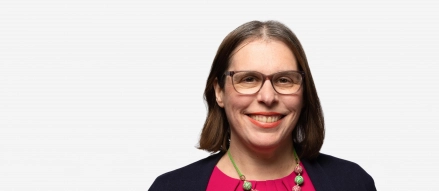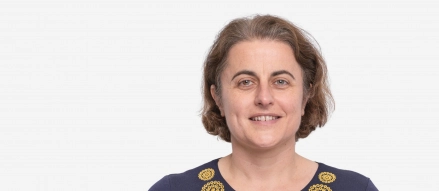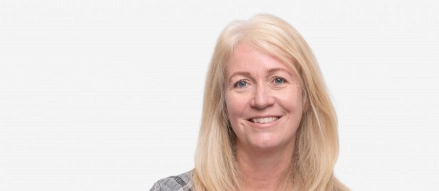
Top 10 VAT cases in 2023
1. United Biscuits (UK) Ltd (‘’United Biscuits’’)
‘’Don’t judge a biscuit by its cover’’!
Biscuits can be zero-rated for VAT as foodstuff unless they are wholly or partly covered in chocolate, then they are taxable at the standard rate as they are considered a luxury item.
United Biscuits manufactures ‘’Blissful biscuits’’ which consist of a biscuit cup with a flat bottom base, covered in a layer of chocolate hazelnut, a layer of chocolate and a logo made of biscuit on top. The top layer of the biscuit does not cover the entirety of the biscuit and some of the underlayer remains exposed, i.e. the filling was visible.
United Biscuits argued that the biscuit had a ‘lid’ which covered 80% of the top of the biscuit. The lid served more than a decorative function, as it ensured the Blissful biscuits kept their structure and provided a crunch element before the consumer tasted the chocolate filling.
HMRC considered that the biscuit logo lid did not cover the whole of the biscuit, only part of it and questioned what covered the remaining area if it was not chocolate.
The First Tier Tribunal (FTT) agreed and considered that the view of the ordinary man in the street would be that the biscuit was, in fact, covered 'in part' by a layer of chocolate and so should be taxable at the standard rate.
Would the ordinary man in the street be blissfully unaware the chocolate cover added 20% to the price!?
2. Grey & Farrar International LLP (‘Grey & Farrar’)
“What’s love got to do with it?”
Could dating matchmaking services qualify as professional consultancy services or was it simply data processing when supplied to individuals overseas? Grey & Farrar’s matchmaking services included interview and vetting processes, advice on modifying behaviour, the matching process itself, and post-introduction liaison.
Grey & Farrar argued that the services provided fell within the definition of consultancy services, and so the place of supply of its services fell outside the scope of UK VAT when provided to individuals outside the UK.
HMRC contended that the services were simply provision of information and the processing of data and so did not constitute a service similar enough to consultancy.
The Court of Appeal ultimately held that the services provided by Grey & Farrar were not a ‘match’ with ‘’expert’’ consultancy.
3. Innate-Essence Limited (‘’The Turmeric Co’’)
"Shots to get the party started?"
Should turmeric shots be zero-rated as a food item, or are they a beverage that is subject to standard-rated VAT?
The Tumeric Co considered the shots were for prolonged use to promote long-term health and well-being benefits and, whilst presented as a drink to aid consumption, were not a beverage.
HMRC submitted that, regardless of the contents or nutritional value of the shots, what matters was that they were drunk and the product was deliberately designed to be a liquid rather than a solid.
Concluding that the shots were not a beverage and so were zero-rated, the FTT considered the turmeric shots were not principally drunk for pleasure and were more akin to a medicinal liquid which, despite the strong and unfamiliar taste, were taken on a regular basis for health and well-being benefits. It also applied the “unexpected guest” test and concluded a turmeric shot would be an unsuitable drink to offer a guest when they visit your home.
Would you drop in on a friend for a turmeric shot?
4. Paradise Wildlife Park Limited (“PWP”)
“Roaring success for HMRC"
PWP were engaged by The Zoological Society of Hertfordshire (‘’ZSH’’) to build a lion enclosure and an outside dinosaur exhibition at the Paradise Wildlife Park.
PWP zero-rated the construction services, on the basis that they were provided during the construction of a building intended solely for non-business education and conservation use by ZSH.
HMRC considered that the construction services were standard-rated, contending that ZSH was using the construction services in relation to its business activities in operating the wildlife park.
The FTT held in order to zero-rate the construction, the areas must have been 'intended for use solely for a non-business purpose'. The ZSH trustee reports detailed how the additions made the park a more attractive place to visit and as such, they had a business purpose.
Unfortunately, it is therefore not possible to zero-rate the construction of a new habitat unless any visitors were only there to be fed to the lions!
5. ‘Illuminate Skin Clinics Ltd (‘’Illuminate’’)
"You’re so vain!"
Are cosmetic skincare and wellness treatments, such as fat freezing, thread lifts, chemical peels, fillers, and facials, exempt from VAT or standard rated?
Illuminate argued that the supply of these were services consisting of the provision of medical care by a person on the register of medical practitioners and so were exempt from VAT.
HMRC disputed that the supplies did not constitute “medical care” and so were taxable at 20%.
The FTT found that medical care means diagnosing, treating, and curing diseases or health disorders. The services must have a therapeutic aim and consist of the diagnosis, treatment or cure of disease or ill health. The fact that people went to the clinic feeling unhappy and may have been happier following a procedure being performed, did not mean that the treatment was medical or had a therapeutic aim.
Compassionately helping someone to achieve goals in relation to their appearance is perhaps not the same as counselling for mental health but these feel like tight parameters that could be loosened.
6. UK Funerals On-line Limited (‘’UKFO’’)
"Good grief"
This case considered whether repatriation services should be zero-rated or exempt from VAT. Services included embalming, provision of a coffin and transport.
HMRC contended that overall, the services were provided in connection with the disposal of the deceased and were not simply transportation.
UKFO contended that this was the transportation of cargo/ goods and provided the airway bill as evidence.
FTT agreed with both sides, in that the services did in fact fall within the exemption, but they were predominantly the transport of goods and so zero-rated.
Interesting that the FTT agreed a deceased person is "goods" rather than a passenger!
7. ‘Derby Quad Limited (Derby Quad’’)
"Get the show on the road"
Live theatrical performances may be exempt from VAT, but could admission to a live cinematic screening of a Shakespeare play also be exempt?
Derby Quad live-streamed a performance of ‘The Tempest’ by the RSC at its cultural hub, and considered the event to be a modern variant of a performing arts experience, which allowed remote audience participation.
HMRC’s position was that admission charges to cinematic performances, and to live performances broadcast from other locations, were taxable.
The FTT could not accept that, despite similarities, such live events were the same as being at an actual theatrical performance, because the actors in Stratford would receive no interaction or feedback from the audience in The Quad, in the way that they would from the audience at the live ‘physical’ event.
Our revels now are ended but we can watch again on the big screen, so long as the VAT is paid!
8. The Young Driver Training Limited (“TYDT”)
“Driving lessons or dodgems!”
As a result of Covid-19, HMRC introduced a temporary reduced rate to support businesses for supplies relating to hospitality, hotels and admission to certain attractions such as amusement parks, funfairs etc.
TYDT provided driving experiences for children aged 4 to 17 at fenced off sites around the UK and argued that these experiences should be treated as admission to an attraction and therefore eligible to fall under the temporary reduced rate.
Both HMRC and the FTT disagreed with TYDT and concluded that the supplies were more than just admission to the area where the cars could be driven but included the use of a vehicle, tuition from a driving teacher etc.
Although the thought of a 4-year-old child receiving driving lessons does make us chuckle, it is clear this was more than just entrance to an event being supplied and, unlike dodgems, the experience was designed to avoid collisions!
9. Steven James Mort (‘’Mort’’)
"Bricks and Morter"
Individuals building a new house may submit a claim to recover VAT on certain costs.
Mort did just that but, whilst HMRC did not dispute that the property qualified as a dwelling, it refused a large element of the claim on the grounds that either the items in question did not qualify for VAT relief as they were not building materials, or the supply received should have been zero-rated. These included wardrobe systems which Mort considered were building materials incorporated into the fabric of the building and ‘basic’.
HMRC disagreed the wardrobes were basic, citing that they were not formed using the walls of the house, i.e. an alcove with a door, and so were furniture.
The FTT found that the wardrobes were more sophisticated than a basic wardrobe and at £80k consisted of complex combinations of shelving, drawers, cabinets and rails and so were deemed furniture.
The wardrobes didn’t link Earth to Narnia, but would you consider them to be building materials incorporated into the fabric of the building?
10. Golf Holidays Worldwide Limited (‘’Golf’’)
Gaffe Only, Looping-back Forbidden
There is very rarely a choice with VAT, but where EU and UK law disagree, there is sometimes a rare opportunity to apply the more beneficial law (under the principle of direct effect).
Wholesale supplies provided by tour operators’ was one such opportunity. Golf originally chose to account for its wholesale supplies within a special scheme (tour operators’ margin scheme) and applied VAT on its profit margin. However, it could have chosen instead to apply normal VAT accounting principles, which would have resulted in a much more beneficial VAT position.
HMRC refused to allow Golf to reverse its previous decision just because Golf made a lawful choice which it then regretted.
The FTT agreed that it made no difference that this was not a considered decision by the company. HMRC did not force the company to act in a particular way and the reality was that Golf was required to live with the consequences.
A costly mistake and a reminder, if ever it was needed, that VAT is a transactional tax and must be considered before any transaction takes place.
Get in touch
Our highly experienced VAT specialists at Mazars thrive on a good VAT conundrum and are ready to help, so please get in touch below if you need any help or advice – see you in 2024!



